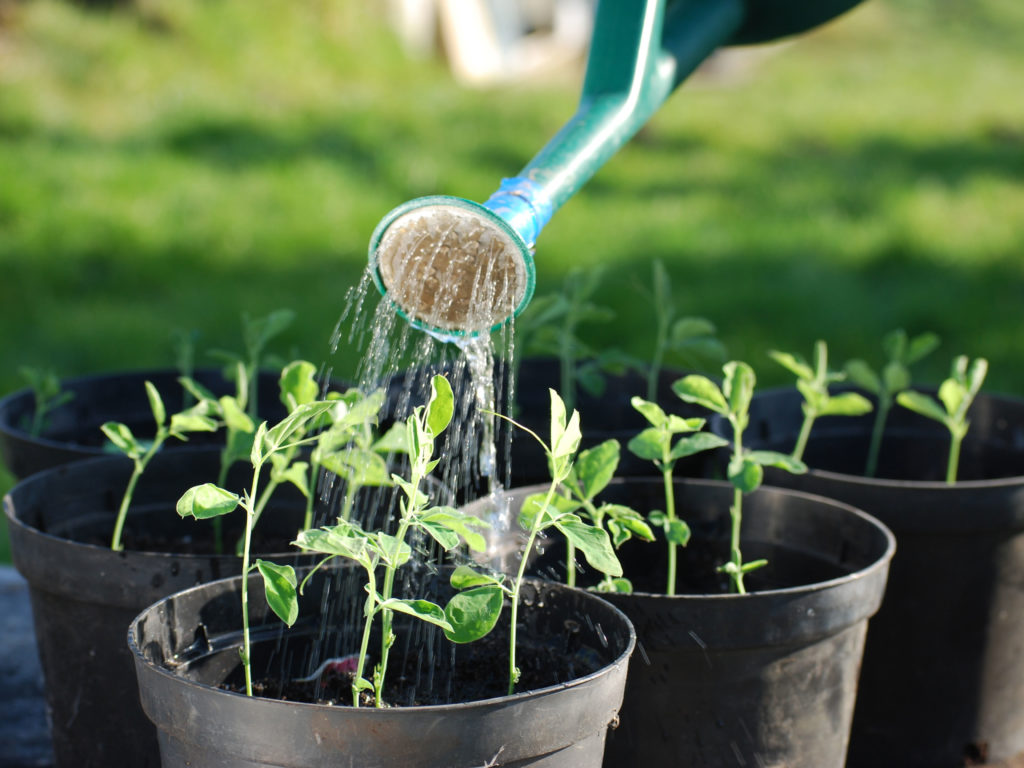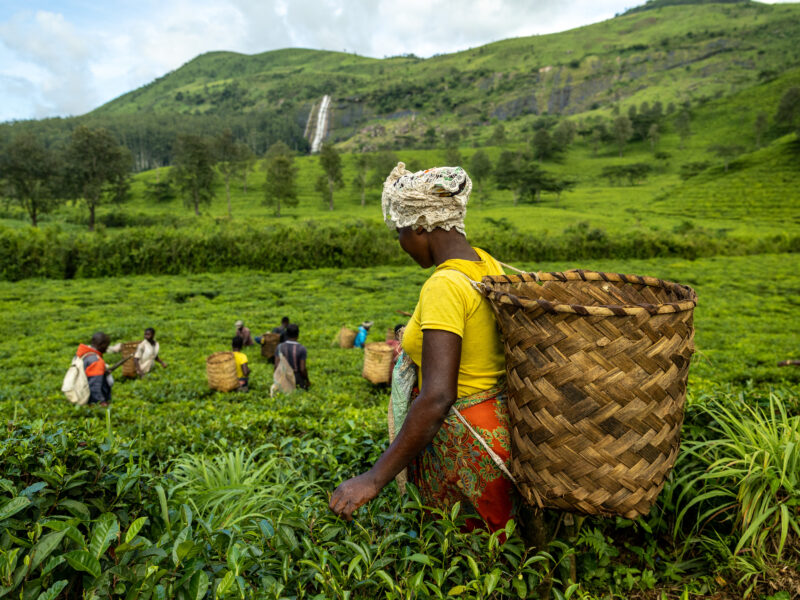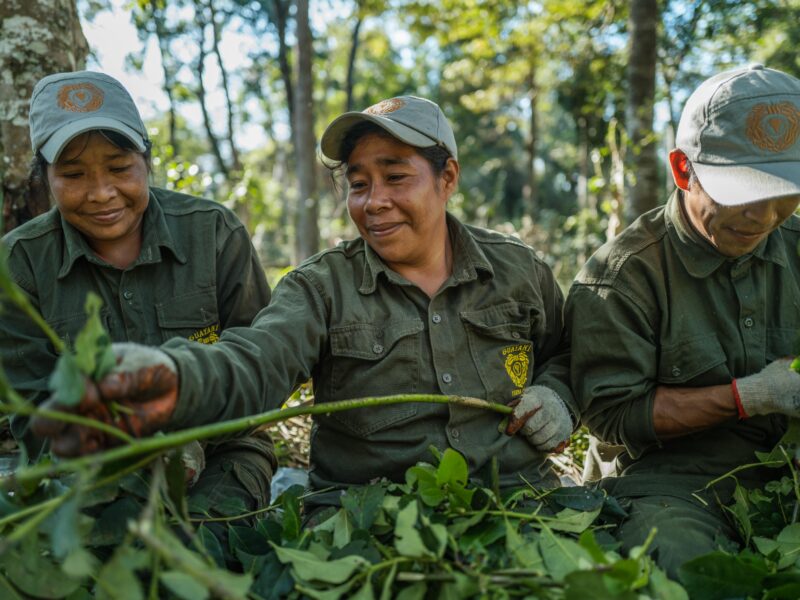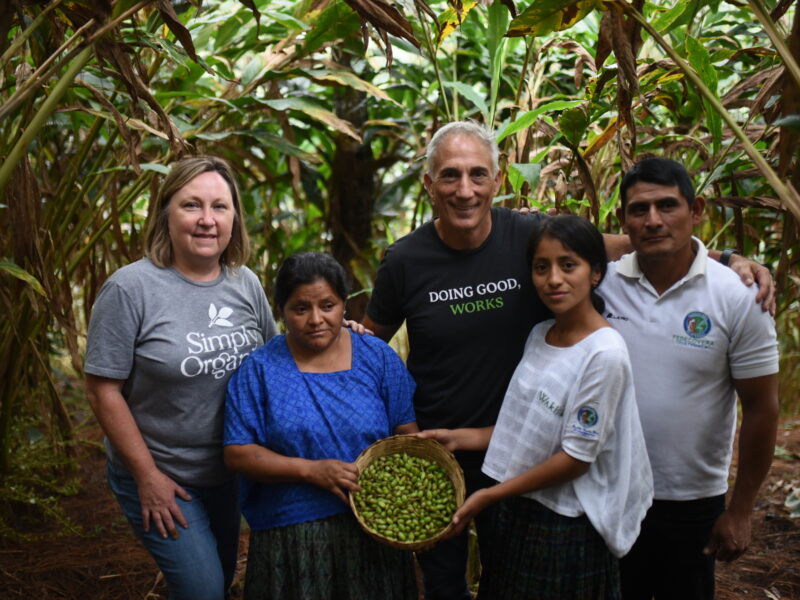This week, Center for Food Safety filed a federal lawsuit against the Trump administration for failing to abide by the mandatory deadlines Congress set in the 2016 genetically engineered food disclosure law. Nestle is facing a federal class-action lawsuit in Los Angeles alleging it sold products with genetically modified organisms with the label “No GMO Ingredients.” Also in court, a jury heard the closing arguments on a Monsanto weed killer case. The plaintiff Dewayne Johnson’s representatives asked the jury to penalize Monsanto $373 million in damages, or interest of their cash on-hand in years since Johnson developed cancer. Out in the fields, farmer Adair Crowe of Crowe Family Farms demonstrates that farming sustainably “is a responsibility not to be taken lightly.” A new report evaluates the world’s agriculture and food systems while considering a range of social, human, and environmental dimensions across the value chain. The numbers of dicamba drift-related crop injuries are on the rise and are sweeping across rural America. Also rising: the outrage of farmers, gardeners and rural residents, as they watch this unnecessary chemical debacle unfold, once again. Watching unperturbed from the sidelines: Monsanto (recently acquired by Bayer) and the Environmental Protection Agency. Attorney, farmer and activist Judith McGeary and the Farm and Ranch Freedom Alliance support small and sustainable farmers in the Lone Star State. When McGeary learned she needed a food manufacturer’s license to keep selling meat at her local farmers markets, she contacted the Texas Department of State Health Services for clarification. “The response was, ‘that’s for you to decide,’” said McGeary. She wanted answers that the State of Texas wasn’t willing to give, so the lawyer-turned-farmer fought the law—and won. A variety of bentgrass, genetically engineered by Scotts Miracle-Gro and Monsanto to tolerate the glyphosate herbicide Roundup, escaped from an experimental field planting in Eastern Oregon 15 years ago, and continues to plague area farmers. Potato company Simplot licenses DowDuPont’s gene editing technology. The developers are DowDuPont, Harvard and MIT, and the technology is a form of CRISPR, which enables gene editing. Agriculture Capital is trying to expand responsible food production methods by investing in farmland and food processing to “build consumer driven, vertically integrated, appropriately scaled and regenerative businesses that support the planet and communities.” It will release its 2018 Impact Report later this summer to inspire “conversation around the regenerative management of land in permanent crop agriculture.”
Center for Food Safety Sues Trump Administration over GMO Labeling Delay
Center for Food Safety (CFS) filed a federal lawsuit against the Trump administration for failing to abide by the mandatory deadlines Congress set in the 2016 genetically engineered (GE) food disclosure law.
Jury Hears Closing Arguments on Monsanto Weed Killer Case
Johnson’s representatives asked the jury to penalize Monsanto $373 million in damages, or interest of their cash on-hand in years, since Dewayne Johnson developed cancer
Nestle misled consumers about GMOs in its food products. lawsuit alleges
Nestle is facing a federal class-action lawsuit in Los Angeles alleging it sold products labeled as having “No GMO Ingredients” with genetically modified organisms.
Farming Sustainably “Is a Responsibility Not to Be Taken Lightly”
“We do everything we can to preserve and build our soils,” Crowe explains. They rotate crops, contour farm, build terraces, and use composted manure from the hogs. “For the last five years we have been strictly using no-till farming and are increasing our use of cover crops,” says Crowe.
Crowe raises hogs this way not only for the farm’s health, but also for future generations. “We do these things not for an immediate reward or satisfaction,” Crowe continues, “but for the possibility that our stewardship of the land will benefit the next generation and generations to come.”
Dietary Pattern Shifts Linked to Degrading Human and Planet Health
Dr. Michael Hamm is a human nutritionist, interested in community food security and sustainable food systems. He is the Michigan State University (MSU) C.S. Mott Professor of Sustainable Agriculture and founding director of the MSU Center for Regional Food Systems. Hamm is a chapter author of the new report from The Economics of Ecosystems and Biodiversity for Agriculture and Food (TEEBAgriFood). This report evaluates the world’s agriculture and food systems while considering a range of social, human, and environmental dimensions across the value chain.
Everything’s Bigger in Texas—Except Its Support for Small Farmers
Attorney, farmer, and activist Judith McGeary and the Farm and Ranch Freedom Alliance support small and sustainable farmers in the Lone Star State. When McGeary learned she needed a food manufacturer’s license to keep selling meat at her local farmers’ markets, she contacted the Texas Department of State Health Services (DSHS) for clarification. “The response was, ‘that’s for you to decide,’” says McGeary. She wanted answers that the State of Texas wasn’t willing to give, so the lawyer-turned-farmer fought the law—and won.
Potato Company Simplot Licenses DowDuPont’s Gene Editing Tech
The developers are DowDuPont, Harvard and MIT; the technology is a form of CRISPR, which is a technology that allows gene editing. With gene editing, an organism’s genome can have bits deleted or added very easily. Interestingly, a few months ago, the USDA announced that it would not be regulating CRISPR-edited organisms the same way it does for other GMOs. The rationale there is that CRISPR is more like an accelerated form of selective cross-breeding. (Not everyone agrees that this is the right approach.)
Pesticides in Foods Can Harm Human Fertility
Pesticides are widely used chemicals that are impossible for most of us to avoid. Many people are aware that they impact weeds, insects, and fungi – as they are designed to do. But it is widely believed that they are harmless to humans at the low doses that they are exposed to through their diet. However, a study published last year in the Journal of the American Medical Association (JAMA) suggests that pesticide residues in food may account for a large proportion of the roughly 100,000 unsuccessful pregnancy attempts in fertility clinics across North America.
Escaped GMO Bentgrass Creates Bitter Divide in Eastern Oregon Still
A variety of bentgrass, genetically engineered by Scotts Miracle-Gro and Monsanto to tolerate the glyphosate herbicide Roundup, escaped from an experimental field planting in Eastern Oregon 15 years ago, and continues to plague area farmers.
Monsanto’s dicamba crisis: guilty as charged
The numbers of dicamba drift-related crop injuries are on the rise and sweeping across rural America. Also rising: the outrage of farmers, gardeners and rural residents, as they watch this unnecessary chemical debacle unfold, once again. Watching unperturbed from the sidelines: Monsanto (recently acquired by Bayer) and the Environmental Protection Agency (EPA).
Responsible Farming Can Secure the Future
Agriculture Capital is trying to expand responsible food production methods by investing in farmland and food processing to “build consumer driven, vertically integrated, appropriately scaled and regenerative businesses that support the planet and communities.” In his role, Turner focuses his time integrating and bringing to life the company’s various sustainability strategies to help find solutions to large-scale environmental problems through responsible and regenerative agriculture. Agriculture Capital will release their 2018 Impact Report later this summer to inspire “conversation around the regenerative management of land in permanent crop agriculture.”









